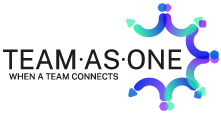The 3C framework (coordination, cooperation, collaboration[1]) is a useful tool to think about how teams work and where the keys for improvement are located. Based on questions and comments received when sharing this framework, here are a few additional thoughts.
All about the activity
 It is the activity that the team needs to complete that determines whether it is working in the mode of coordination, cooperation or collaboration. This also means that a particular team can shift between these modes of working depending on its activity.
It is the activity that the team needs to complete that determines whether it is working in the mode of coordination, cooperation or collaboration. This also means that a particular team can shift between these modes of working depending on its activity.
A leadership team needs to work in collaboration mode when they are co-creating the organization’s 3-year plan.
They need to cooperate when each of them completes their task in an established process and hands it over to the next step (example store -> production -> quality -> shipping).
When they update one another during the monthly meeting about the progress and challenges they have in their respective areas of responsibility (marketing, operations, finance …) this same team is working in a coordination mode.
Nothing “wrong” with coordination or cooperation!
Coordination or cooperation are not of a lower ‘value’ than collaboration. If an activity requires “only” coordination or cooperation, then trying to work in a collaboration mode would only complicate things unnecessarily. It is valuable for a team to identify on which activities they want to work in which mode and define the modalities of working together in each mode.
Coordination or cooperation can be very effective when each member of the team focuses on optimizing their own task. A building cleaning crew will successfully complete the job if each member of the team focuses on their own task and completes it on time and within the required specifications.
Trying to transform activities that are coordination or cooperation into collaboration can fall flat. We all have been in the status update meeting where team members take turns to share the progress in their respective area … only for an uncomfortable silence to follow when the team leader tries to foster connections with an awkward “Anyone any questions?”.
Team psychological safety is either critical or nice-to-have
In the collaboration mode, team psychological safety is critical because team learning is key to deliver performance in an activity where there is no pre-established process or best practice. And we know well that team psychological safety is the main driver for the team to learn!
But what about team psychological safety for an activity that is of the coordination or cooperation kind? For sure, for a team that regularly works in collaboration mode, the collaboration habits will impact positively how they work when the task requires coordination or cooperation.
What of the case where a team only ever works in coordination or cooperation mode? Should this team look at creating team psychological safety? My answer is no; I think focusing on psychological safety is energy spent unnecessarily with limited return on the effort.
The reason is that team psychological safety is “a shared understanding by the members of the team that the team is safe for interpersonal risk taking”[2]. In the coordination and cooperation mode, there is very little “sharedness” at the level of the team, and the interpersonal risks are very limited in nature. For example “It is safe to take a risk on this team” is not applicable to a cleaning crew where each team member focuses on their own subtask. And for a team that cooperates, it would only be applicable to those sub-parts of the team that have task handovers.
For teams working in coordination or cooperation mode, there are other priorities that can be developed: communicating, sharing information, establishing shared boards for progress monitoring etc.
Let’s focus team psychological safety only where it really makes a difference: for a team that needs to learn together to improve its performance!
Peter Cauwelier
TEAM.AS.ONE
2023
- Andreatta, B., Collaboration, Coordiation, Cooperation: Thriving in the era of team-based work by differentiating teamwork types, in HRD Connect. 2023, HRD.
- Edmondson, A.C., Psychological safety and learning behavior in work teams. Administrative Science Quarterly, 1999. 44(2): p. 350-383.

